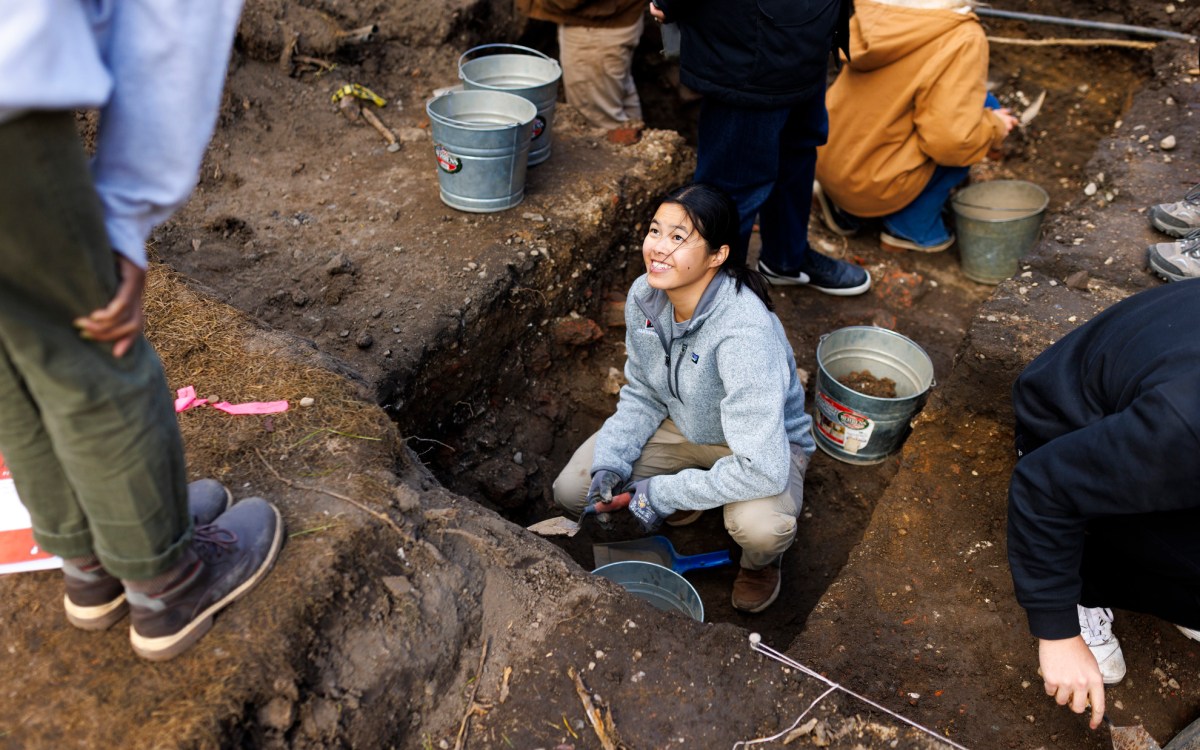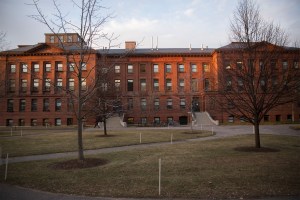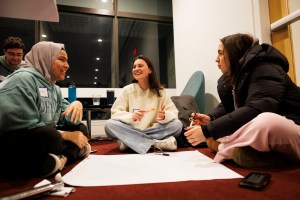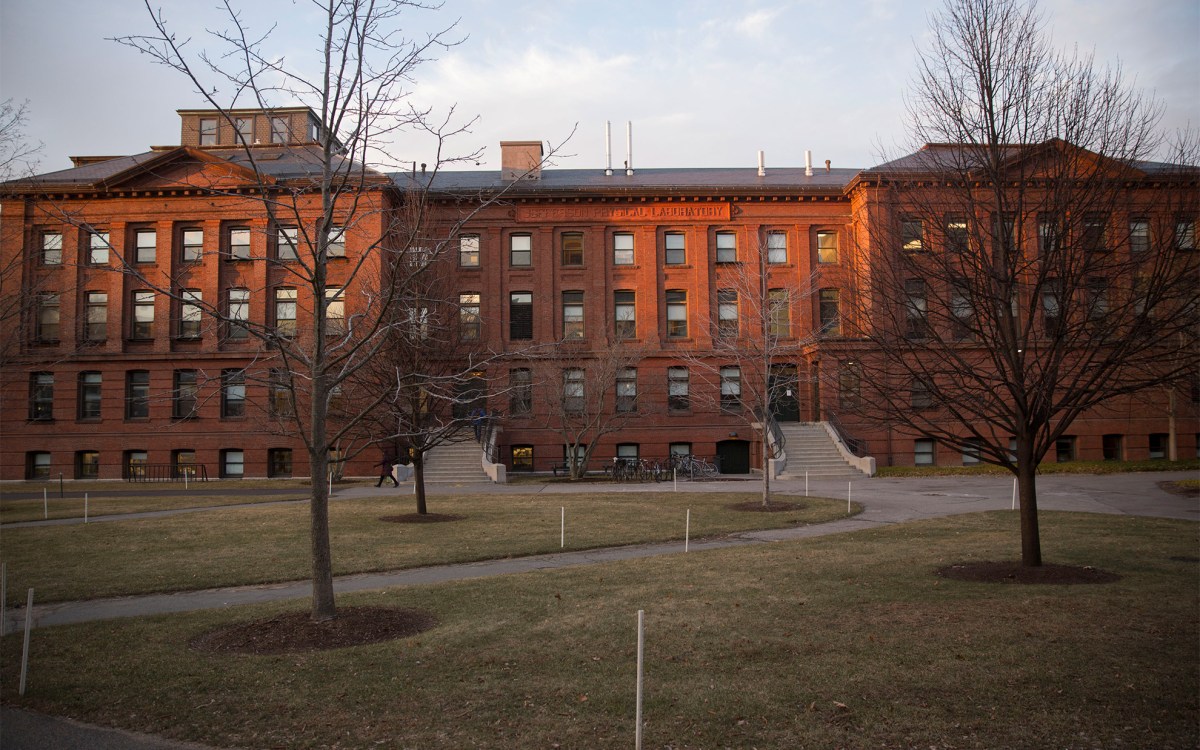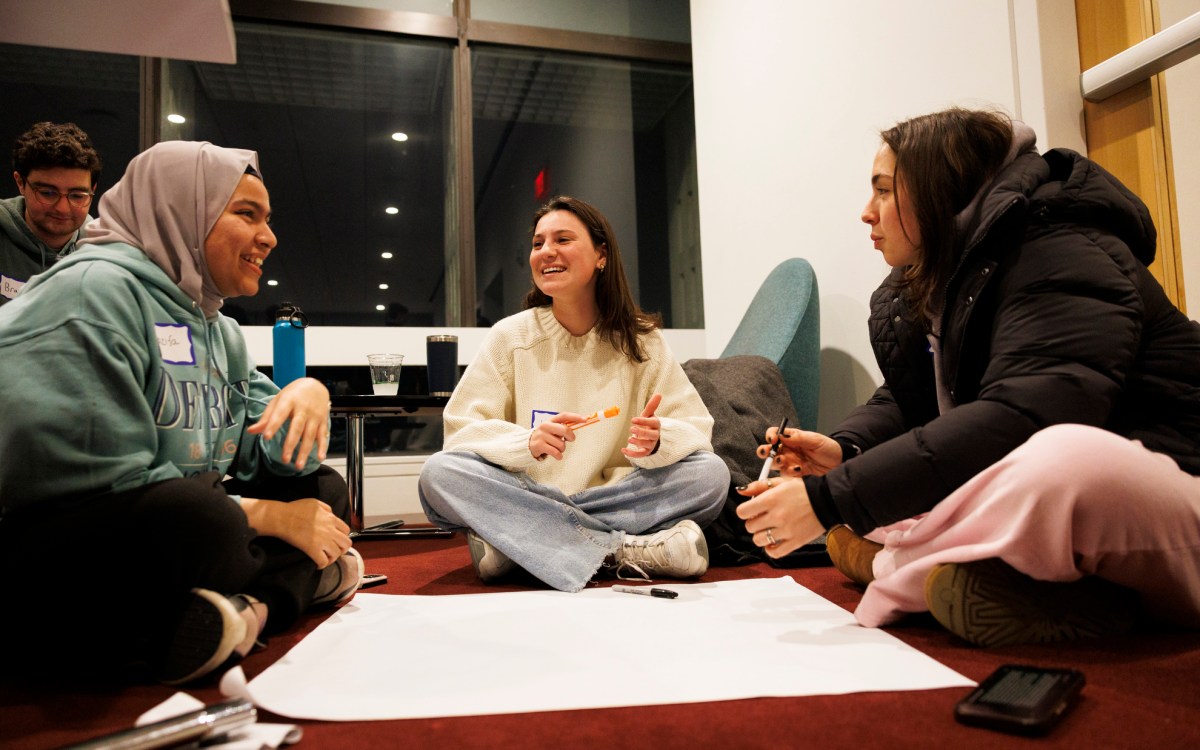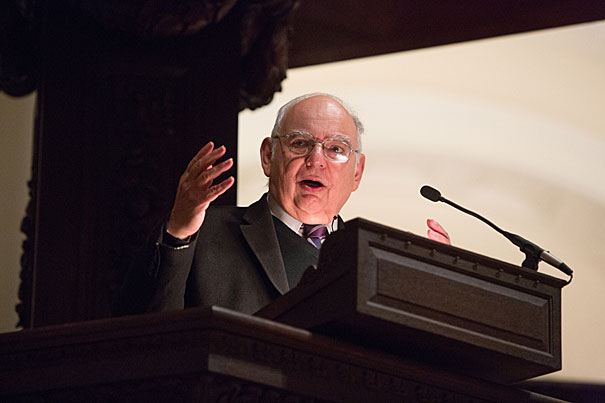
Ernesto Cortés Jr. received the Robert Coles “Call of Service” Award for his efforts to empower people to improve their lives and circumstances. After receiving his award, Cortés climbed up to the Memorial Church’s grand pulpit, 15 feet above the audience, to deliver his lecture. “I feel like I’m in ‘Moby Dick,’” he chuckled.
Photos by Scott Eisen/Harvard Staff Photographer
Cortés receives service award
Cited for efforts in Southwest that empower people to improve lives
Ernesto Cortés Jr. has spent nearly 40 years teaching the disenfranchised how to communicate their stories in ways that assert their place in the world.
As co-director of the Industrial Areas Foundation, which has dozens of affiliates in the Southwest, he has taught thousands of people how to harness and direct their anger by helping them to organize with others to change conditions around them. He teaches people to take their anxieties, fears, and insecurities and translate them into programmatic issues that can be organized around public services, housing, and early childhood education, for example.
For those efforts, the Phillips Brooks House Association (PBHA) presented its annual Robert Coles “Call of Service” Award to Cortés on Friday in the Memorial Church.
“What he is about is nothing less than restoring our American democracy,” said Gene Corbin, assistant dean of student life for public service, who presented the award.
After receiving his award, Cortés climbed up to the church’s grand pulpit, 15 feet above the audience, to deliver his lecture. “I feel like I’m in ‘Moby Dick,’” he chuckled in his soft Texas drawl above the crowd of 150 alumni, community leaders, and students in the pews below. Coles himself, professor of psychiatry and medical humanities emeritus at Harvard Medical School, sat in the front row with his two sons, daughter-in-law, and grandchildren.
Cortés is well-known for peppering his talks with information from favorite writers. In this lecture, he quickly brought up a 1938 essay by philosopher John Randall called “On the Importance of Being Unprincipled.”
The essay, Cortés explained, teaches that “the only people who can afford to be overly principled are lunatics and dictators. The rest of us mortals have to learn the art of compromise, the art of concession.”
From this idea, Cortés has built his organizing work, helping people at the “margins of life … earn their rightful place” at the table of politics.

When people with no status, no land, and no wealth learn to negotiate, he said, that can transform communities. He urged such civic organization at the local level, in communities, townships, and school boards.
One project in which he takes the most pride helped to create water and sewage systems for more than 2 million people in the Texas-Mexico border region, from El Paso to Brownsville. “Neighborhoods that were virtually shantytowns transformed into vibrant communities,” he said.
Cortés stressed that organizing is not about the “haves vs. the have-nots.” It’s about being inclusive, and finding that people, regardless of class or race, often have similar concerns. Discovering those commonalities takes “time and patience,” as well as “a lot more care” and “a lot of false starts. But that’s the nature of any kind of transformation.”
What can improve anyplace, Cortés said, including cities, states, universities, businesses, and unions, is recruiting new people from different communities and constituencies. By constantly reorganizing in this manner, “You get different ideas and create a type of pluralism.” That, he said, is the way to prevent oligarchy.
He took a moment to reflect on the presidential election, which he suggested “has very little to do with politics. It’s about mobilization of a forced and managed electorate.”
“Your political perspective depends on what you think is the relevant time period,” he said after the lecture. “The relevant time period for a politician is the next election. The relevant time period for a corporate executive is the end of the quarter. But the relevant time period for a grandparent is a generation, so I argue that you need to develop organizations that think like grandparents, to organize and reorganize to build power to make things happen for grandchildren.”
Cortés is the sixth recipient of the award. Past recipients include Marian Wright Edelman and Geoffrey Canada. PBHA is a Harvard College student-facilitated nonprofit, with more than 1,600 volunteers serving more than 10,000 people through 83 programs.
